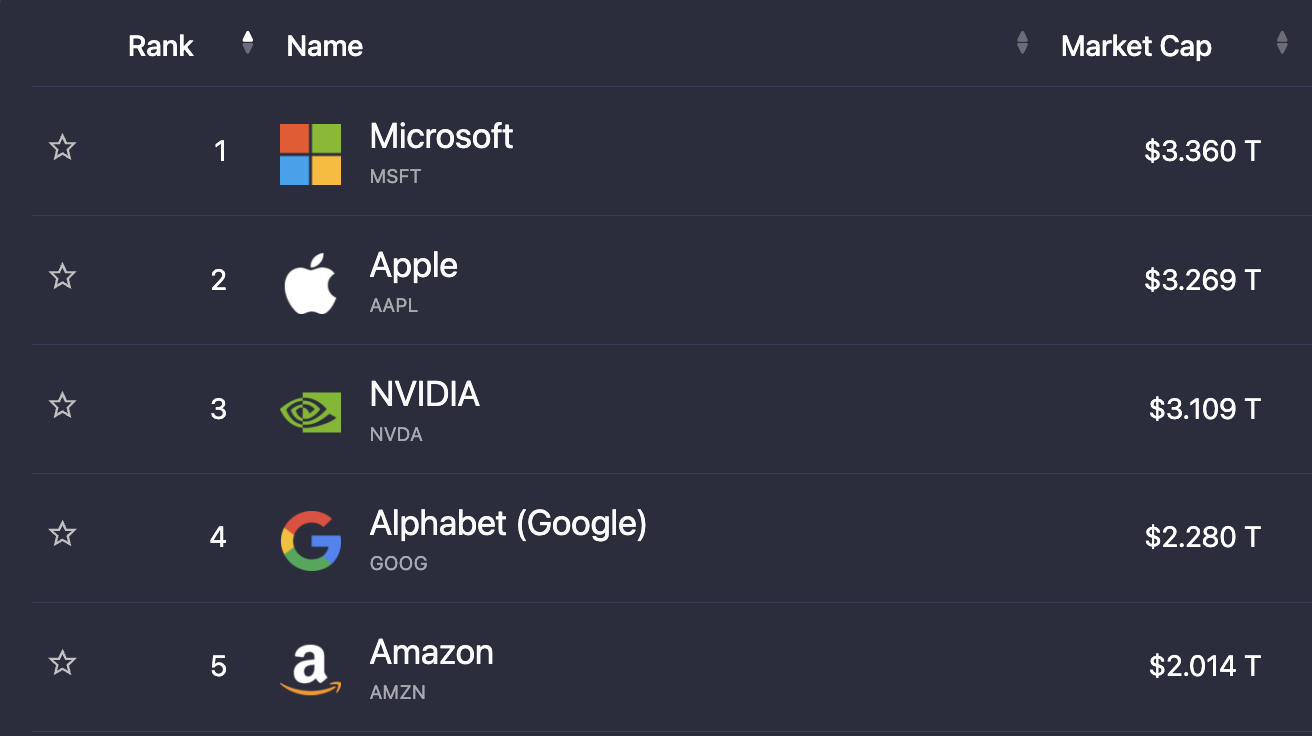Amazon (AMZN) recently saw its share price rise by 3.9%, pushing its market cap past the $2 trillion milestone. It is now the fifth U.S. company to achieve this feat, following in the footsteps of Apple, Microsoft, Alphabet, and Nvidia.

Amazon probably caught some of the AI stardust too, particularly through its Amazon Web Services (AWS) offering various AI models and developing its own AI chips like Trainium2.
Unlike its peers, Amazon has taken a quieter approach to AI, which may have contributed to its slower journey to the $2 trillion mark. Additionally, Amazon’s stock price remains close to its previous all-time high from 2021, unlike the other four companies, which have convincingly surpassed their 2021 highs.

AWS remains a significant profit driver for Amazon, but e-commerce continues to be its primary revenue source. Under CEO Andy Jassy, Amazon has seen a return to double-digit revenue growth, with a 13% year-over-year increase in Q1 2024. Amazon’s free cash flow has turned positive too, reaching a record high after two years of negative figures.

Amazon’s competitive moat remains robust despite challenges from competitors like Temu. Recent cost-cutting measures have also made the business leaner, providing a strong foundation for future growth. This suggests better days ahead for Amazon.
With five U.S. stocks crossing the $2 trillion mark, it’s interesting to compare their performance. Below is a table showing their year-to-date (YTD), 1-year, 5-year, and 10-year returns, including dividends:

Nvidia: The standout performer with the highest returns across all measured periods is Nvidia, driven by the AI boom and its unique position in providing AI tools. However, Nvidia’s exceptional returns skew the overall comparison. The more useful pattern lies with the second-best performer over the different time periods.
Microsoft: The second-best performer over the last decade.
Apple: The second-best performer over the five-year window.
Amazon: The second-best performer in the past year.
Alphabet: The best performer year-to-date after Nvidia.
These comparisons highlight that investing in beaten-down U.S. Big Tech stocks can pay off, as they tend to recover more strongly when fundamentals improve. Additionally, each of these companies encounters challenges at different times, creating opportunities to pick up laggards. This cyclical nature offers investors the chance to buy quality stocks at a discount, benefiting from their eventual rebound.
All eyes are now on Meta, which has a market cap of $1.3 trillion and would need a 53% rally to hit the $2 trillion mark. Meanwhile, Berkshire Hathaway is closer to a milestone, needing just a 13% increase to reach a $1 trillion market cap. Achieving this would be a significant and well-deserved milestone for Berkshire and Warren Buffett.

